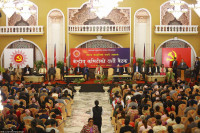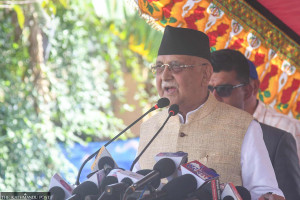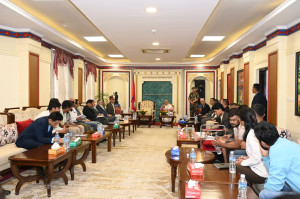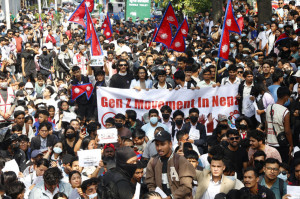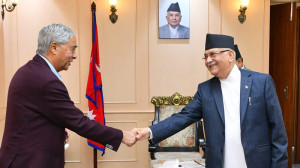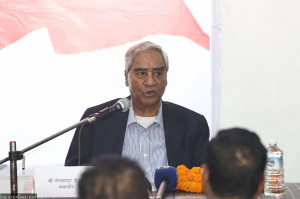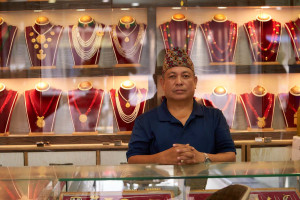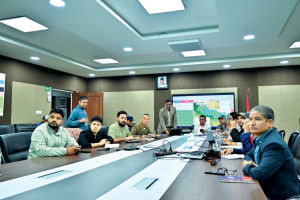Politics
Parties deny dissidents tickets, many hit back by filing rebel candidacies
Many leaders have even allied with rival forces against the candidates of the mother party or its electoral alliance.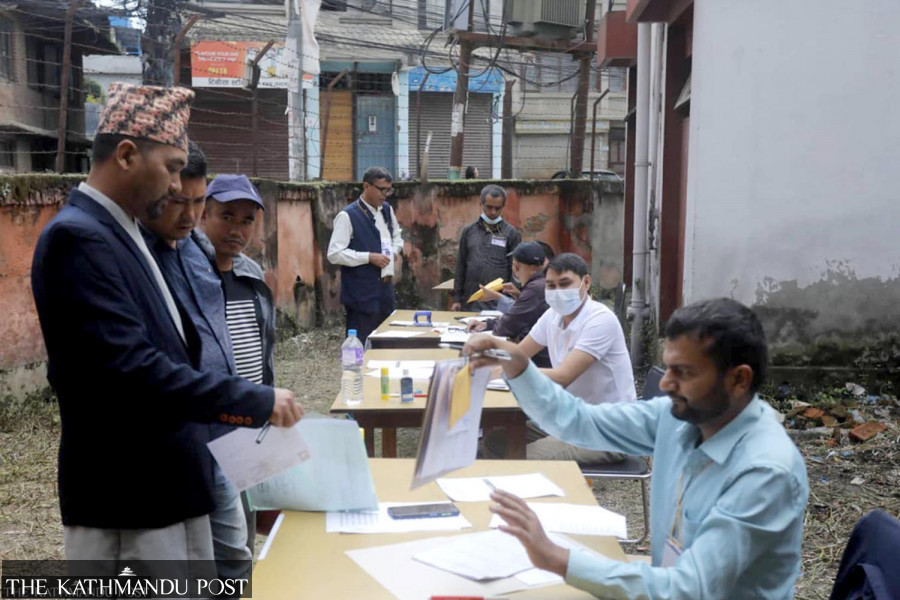
Nishan Khatiwada
The filing of nominations by candidates of various political parties and independent aspirants for the first-past-the-post (FPTP) seats of the federal parliament and provincial assemblies concluded Sunday.
Candidates filed their nominations for the 165 House of Representatives seats and 330 provincial assemblies seats for the elections scheduled for November 20.
But the candidates-selection was not free of controversy as it kicked up a storm in the major parties—many leaders quit their parties, resigned from their posts, or filed rebel candidacies against the official candidates of their parties or alliances.
Moreover, several senior politicians unhappy with their party brass have decided not to contest the elections, ignoring requests to the contrary.
One thing common among the disgruntled leaders is that almost all of them have long been critical of their party leaderships and speaking up against top-level decisions.
Observers say it is evident that the top leadership of the political parties only favour their confidants, and sideline the leaders with new ideas and opposing views.
After quitting the CPN-UML, Ghanashyam Bhusal filed his candidacy as an independent from Rupandehi-1, reportedly with the backing of the Nepali Congress-led electoral alliance. On Saturday, upon learning that the ticket from his constituency was given to Dipak Bohora of the Rastriya Prajatantra Party, Bhusal announced his resignation from the party.
Similarly, Minendra Rijal of the Nepali Congress who was planning to contest for a lower house seat from Morang-2 was denied a ticket, which was given to another leader Sujata Koirala instead. Rijal had won the 2017 elections from the constituency.
Likewise, the CPN-UML has denied a ticket to its dissident leader Bhim Rawal although the party’s lower bodies had unanimously endorsed him as candidate from Achham-1. The party has decided to field Jhapat Bohora—a leader who recently joined the party after quitting the Maoist Centre—from the constituency.
Nepali Congress leader Amresh Kumar Singh has also been deprived of a ticket by the party.
Similarly, Congress leader Jagannath Poudel, an influential leader from Chitwan Congress who had in May fought for Bharatpur mayorship against the party’s wishes and lost, has filed his candidacy as an independent.
Many other influential local leaders of big political parties have decided to contest the November elections as independents.
In Kaski-3, Congress and UML leaders are standing against their parties’ official candidates.
As many as 150 district leaders of the CPN (Maoist Centre) in Dhankuta including Hemraj Bhandari, a former lawmaker from the party who is also a Politburo member, announced their collective resignation on September 26 protesting the party’s decision to forge alliance with other parties.
They had announced that they would field Bhandari as an independent in Dhankuta’s only lower house seat.
In the CPN-UML, the Das Bhai (ten dissidents) were targeted by the party chair Oli’s camp. Among the dissidents, those who softened their tones have been rewarded with tickets, but those who refused to compromise have been deprived of their chances to contest the elections.
Observers say the top leaders of the major parties do not want to hear critical voices and have been exercising monopoly in candidate- selection. According to them, to get election tickets and to rise through party ranks, one has to kowtow to the top leadership and turn a blind eye to the party’s wrongdoings.
Most parties are being led by mediocre leaders who have been running the show in an authoritarian manner and are inordinately averse to dissent, said Puranjan Acharya, a political analyst. “The top leaders of major political parties don’t want to hear critical voices,” he said.
According to him, even though the Congress is a little more sensitive to dissident voices, party president Sher Bahadur Deuba is no different to the top leaders of other parties. “Even the Congress has denied tickets to several electable candidates, who have a track record of winning elections. In all parties, those who have failed to gain the trust of top leaders have been denied tickets,” Acharya told the Post.
The Nepali Congress-led electoral alliance has sealed an electoral deal by dividing the 165 FPTP seats—90 for Congress, 47 for the CPN(Maoist Centre), 19 for the CPN (Unified Socialist), seven for the Loktantrik Samajbadi Party, and two for the Rastriya Janamorcha.
The CPN-UML has also forged an alliance with the Madhesh-based Janata Samajbadi Party, the pro-monarchy Rastriya Prajatantra Party, and Kamal Thapa’s Rastriya Prajatantra Party-Nepal, which advocates a Hindu state. The party has ceded a few constituencies to the Rastriya Prajatantra Party and 17 constituencies to the Janata Samajbadi. Thapa is contesting from Makawanpur-1 on a UML ticket.
Analysts say the country has slipped into a political quagmire and blame the leaders of the major parties for the state of affairs.
Our political parties lack unity and discipline, said Lok Raj Baral, a political analyst.
“The top leadership should be tolerant, responsible and visionary, but our leaders lack such qualities. They are rather practising nepotism and favoritism, and bringing their confidants and relatives to power,” Baral told the Post. “This has cost the political system dearly. Also, the unnatural political alliances that serve vested interests will do no good to the country.”
CK Lal, a political commentator and columnist with the Post, said parties have turned Nepal into an oligarchy. “In oligarchy, top leaders make their own political kingdoms, reward their loyalists and punish those who go against them. It has been happening in Nepal’s politics after the promulgation of the 2015 constitution,” he told the Post.
Lal added that the top leaders are oligarchs who only favor those loyal to them and cannot tolerate dissent.
Acharya, another observer, concurs. “Only those who are blindly loyal to the top leadership are getting a chance,” he said. “This will lead to a handful of leaders controlling the system, which is bad for both national politics as well as the country.”




 18.12°C Kathmandu
18.12°C Kathmandu
